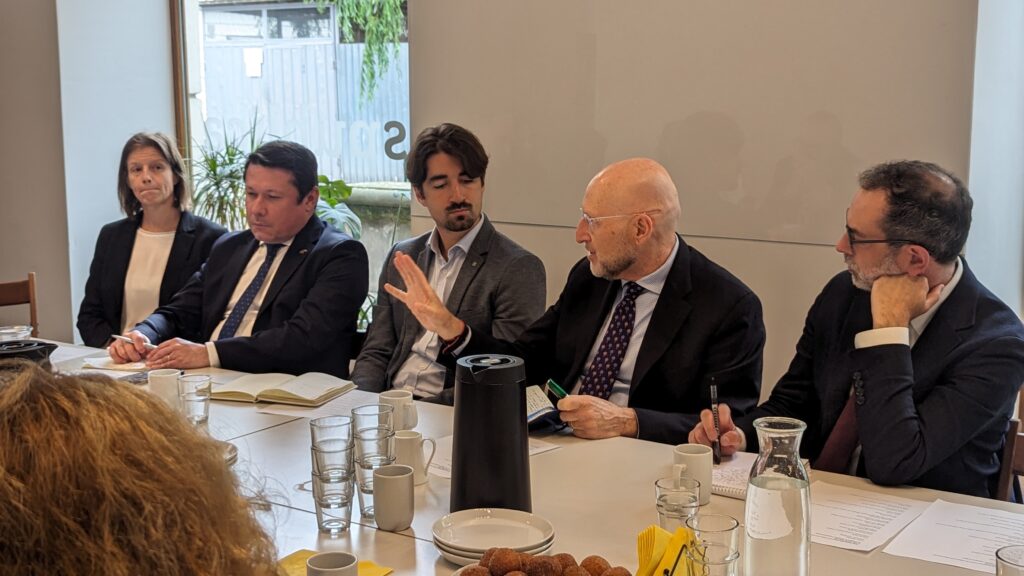Projects
Think Tank
What Babiš means for the EU
31 October 2025
3 June 2025
All eyes are now on Poland. During the meeting, we discussed what the victory of Karol Nawrocki – the PiS-backed candidate – means for the country moving forward.
On June 3, we had the great pleasure of welcoming ambassadors, diplomats, journalists and experts to the Visegrad Insight Breakfast.
Jarosław Kaczyński’s strategy is clear: he wants early elections and a ‘technical’ government. His goal? To push Donald Tusk out as soon as possible. In response, Tusk has called a vote of confidence, directly addressing the pressure from PiS.
The notable increase in voter turnout between the two rounds speaks to the power of undecided and absent voters. Candidates must not only cater to their own camps but also actively present an attractive package for less-determined voters.
Notably, a certain portion of Tusk / KO voters from the 2023 parliamentary elections did not vote for their promoted candidate. If Trzaskowski could have mobilised the broad voter base of the governing coalition more effectively, he would have emerged victorious.
Tusk realises this and aims to ‘reach out’ to voters from Nawrocki’s camp. For a 2027 parliamentary victory, he must be a unifier in a divided Poland.
The election of Nawrocki cements the ‘trench warfare’ between the two branches of government, a situation that is neither favourable to the Tusk government nor the Nawrocki presidency. Nawrocki’s veto powers are met by Tusk’s budgetary control over the executive.
The leader of the opposition PiS, Jarosław Kaczyński, will be incentivised for an early parliamentary election in order to capitalise on the moment. Tusk understands his vulnerability and has scheduled a vote of confidence in his leadership for 11 June.
Regionally, Nawrocki’s win is favourable for Orbán, who sees more utility in the new president than in Trzaskowski. It also signals an ideological boost for Trump’s MAGA movement. At last week’s CPAC Poland event, Kristi Noem, a member of Trump’s circle, endorsed Nawrocki, calling Trzaskowski ‘an absolute train wreck of a leader’.
Although this past weekend was a victory for Kaczyński’s PiS, there will be many challenges before 2027. Kaczyński is not a coalition builder. Throughout his political career, he has prioritised his own party over the stability of coalition and partnerships. Furthered by fragmentation within the right-wing bloc, notably between PiS and Konfederacja (Confederation), Kaczyński is pulled between personal intransigence and the need to gain a parliamentary majority.
In 2023, the KO was united through a need to counter PiS’s institution-eroding rule. Partisan politics aside, many voters felt that PiS’s practices were toxic to democratic norms. Yet, the more time PiS spends away from power, the level of perceived ‘toxicity’ for voters also decreases. Having spent 4 years away from power by 2027, PiS can somewhat isolate itself from past connotations.
Nawrocki’s recently uncovered scandals – such as his links to prostitution, hooliganism and a dodgy real estate arrangement – may pose risks for his career and PiS. However, if the Tusk government dominates discourse on such matters, it may become perceived as partisan attacks, rather than genuine concerns.
With two years remaining, Tusk and his coalition government now face the challenge of delivering results in spite of a solidified president-PM gridlock.



